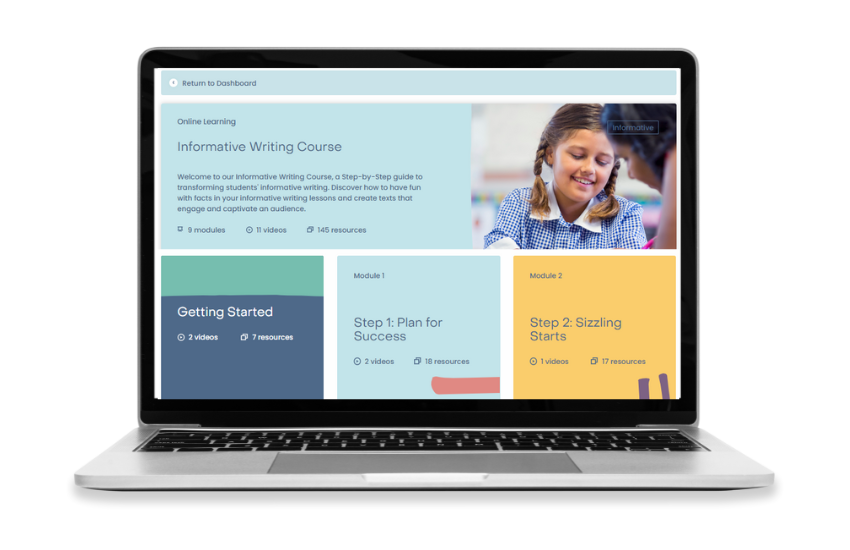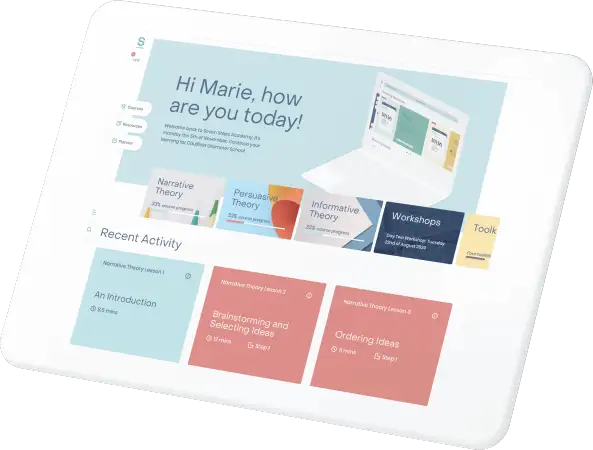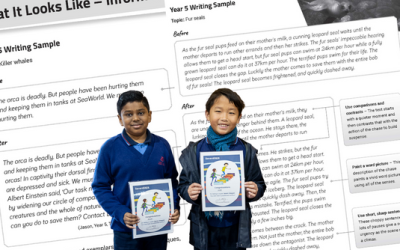How do you teach great informative writing?
Informative writing classifies, describes and gives factual information about people, animals, things or phenomena … but it doesn’t have to be boring!
With the right techniques, an informative text can engage the reader, make them laugh or cry, and keep them on the edge of their seat – all while conveying information about a topic.
Teaching your students to write an informative piece involves training them to think like authors. You’ll need to help them understand what great informative writing looks like and the skills writers use to create the biggest impact.
How? Break down writing into bite-sized chunks. Teach the basic structure of informative texts. Teach students to think first, write second. And practise every day!
Teach great informative writing with these free resources
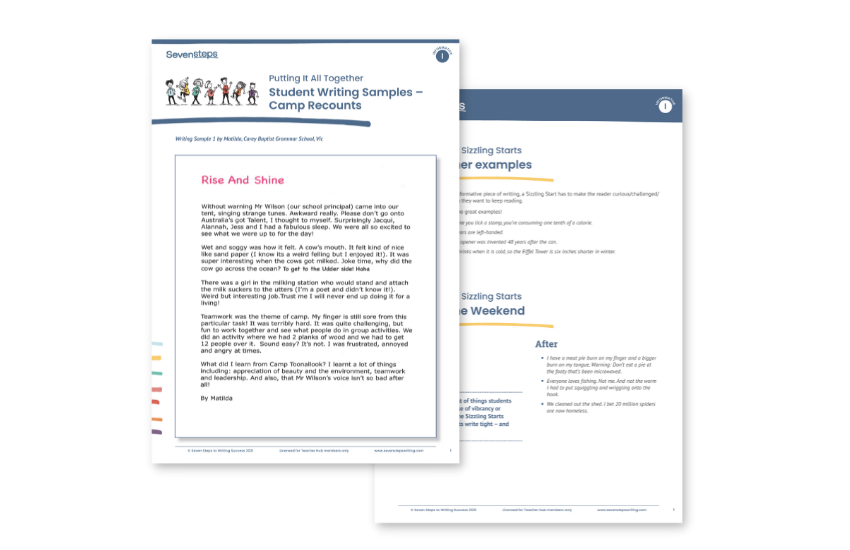
Writing examples
Our free Informative Writing Examples collection includes:
- before and after examples
- student writing examples
- lists of mentor texts.
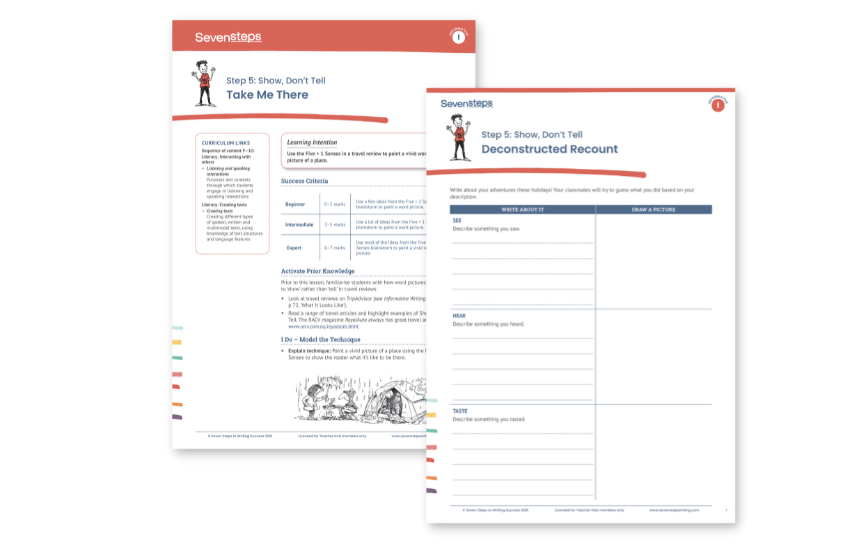
Lesson plan and template
Get a ready-made template and lesson plan that includes:
- links to the Australian Curriculum
- a learning intention
- success criteria
- differentiation ideas.
Writing prompts
Use these prompts daily or weekly as a fun way to:
- build students’ confidence
- nurture students’ creativity
- practise one writing technique at a time
- celebrate students’ writing.
Comprehensive resources to teach informative writing
Informative Writing Manual
This manual is packed with practical, time-saving classroom resources that will help your students bring facts to life!
Includes a user-friendly digital file, plus a photocopy and intranet licence for your entire school.
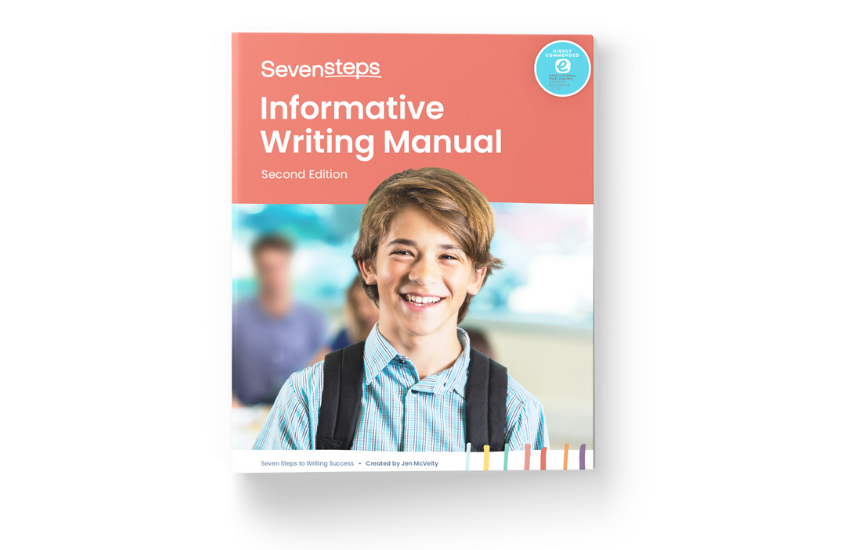
Informative Writing Course
Become a Seven Steps member to enjoy full access to the Informative Writing Course on Teacher Hub. It contains everything you need to learn and implement the Seven Steps.
A simple implementation plan guides you through each module, which includes short training videos, classroom PowerPoints and 100s of curriculum-aligned resources.
